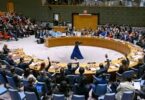Addressing a seminar hosted by Sustainable Development Policy Institute (SDPI), Foreign Minister Khwaja Asif hinted at shift from the United States towards China and Russia. He said Pakistan policy for long had remained US centric; however, the time has come to review our foreign policy and shift its focus towards Russia and China. He emphasized that revisiting foreign policy is the need of the hour.
The foreign minister, apparently give an indication of inclination towards the left block of the world, saying “China lives next to us and we have a common wall. Russia can also be our good friend” But in the same breath give the antithesis of likely shift in foreign policy referring to the present ground realities. “We can not have an independent foreign policy until we are economically strong, the Minister mentioned. Khwaja Asif admitted this fact that United States has been Pakistan biggest trade partner. “We have to convert our diplomatic outpost to trade outpost,” adding that Islamabad might improve and correct its relationship.
Unlike the vague gesture of Pakistan’s Foreign Minister, Russia is very clear about closer cooperation with Pakistan. The Indian media asked the Russian Deputy Foreign Sergei Ryabkov during his recent visit to India, about Russia relations with Pakistan and its stance on Indian application for membership of Nuclear Suppliers Group (NSG). He categorically admitted that Russia is looking forward to build its ties with Pakistan, which he described a country taking interest in multilateral forums. However, he clarified that Moscow has no “hidden agenda” in its dealing with Islamabad. “I can assure you that Russia ties with no country in the world will come at the expense of its relationship with India,” said Ryabkov. About the Indian application for NSG membership, Russia Deputy Foreign Minister said that India’s application can not be interlinked with that of Pakistan and Moscow is discussing the issue with Beijing at different levels. China has favored a criteria based approach for expansion of 48 member group which controls the international nuclear commerce.
Pakistan civilian leadership is confused how to respond to the diplomatic initiatives of Russia in the region. On the other hand, Indian leadership is closely watching the Russian moves on the foreign policy front. They are convinced that Russia is searching a new ground in Pakistan and closer cooperation between the two countries can be a game changer for both Pakistan and South Asia. They are of the view that Moscow is now busy in resetting the balance of power in South Asia. It refused to call off its first ever bilateral military exercises with Pakistan on India’s request following the militants attack on the military base in Uri in September 2016. In another instance of this change at the Heart of Asia Conference in Amritsar, on 3rd and 4th December, the Russian envoy disapproved the branding of Pakistan as a terrorism exporting country.
CPEC has offered Pakistan a strong economic and political fall-back in the event of deteriorating relations with the United States. Russia is interested to link the Eurasian Economic Union with CPEC. Hence, Indian leadership visualize Moscow move as a sign of proscribing the growing rapprochement between Washington and New Delhi in the form of strategic partnership. They also know that Russia will throw its weight behind Pakistan for the stability in Afghanistan. Kabul stability is an add-on to peace in Central Asia. Moreover, peace in Afghanistan will open a gateway to a sprawling market for Russian goods.
The Foreign Minister has rightly emphasized the linkage between independent foreign policy and strong economy. But who is to blame for ruining the economy with massive corruption, extravagance, macroeconomic imbalances and entangling the economy in a debt trap? Certainly, the previous PPP and present PML-N governments are responsible for this economic mess. The only option for breathing on economic ventilator is another IMF bail-out package much bigger than earlier loan program of $ 6.2 billions. The United States enjoys 70 percent of voting rights in the World Bank and IMF. Does the present weak political leadership can show spine to decide a shift in foreign policy? Beggars are no choosers. That is why PML-N government could not take a tough and clear stance on President Trump’s decision of recognizing Jerusalem the Capital of Israel whereas Turkey, Iran and other Muslim counties gave a sharp response.






